Your donation will support the student journalists of Marquette High School. Your contribution will allow us to purchase equipment and cover our annual website hosting costs. You may become a PATRON by making a donation at one of these levels: White/$30, Green/$50, Blue/$100. Patron names will be published in the print newsmagazine, on the website and once per quarter on our social media accounts.
District, Community Encourages Educated Recycling
District, community encourages educated recycling
March 28, 2023
While most students sit through their first hour class, Applied Skills students go classroom to classroom collecting the recycling bins.
Molly Straumann, Applied Skills teacher, is in charge of the program, along with teachers Eric Kipp and Molly Dilberto.
“It’s one job skill that the kids can consistently do every week,” Straumann said.
The students sort through the recycling after it’s collected and learn about what can and cannot be recycled. Non-recyclables in the blue bins are highly common, highlighting miss-education within the student population.
Outside of this recycling program, many other students and staff advocate for increased recycling.
Recycling at MHS
Zeenia Taraporevala, senior, is active in supporting recycling in different clubs such as the Environmental Club. She said recycling is a viable solution to reduce waste, but it still faces many challenges with reproducing used materials.
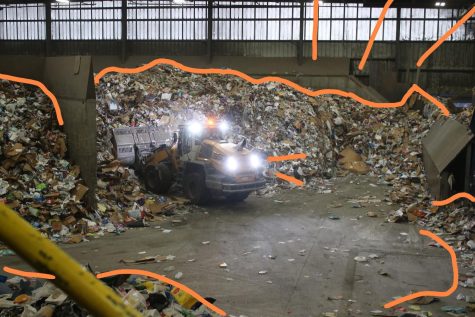
At MHS, the majority of classrooms have recycling along with trash bins. Despite this, many students are unaware of what can’t be recycled and sometimes throw away trash in the recycling bins.
Taraporevala said MHS should prioritize recycling education, and students should help with the recycling process at school.
Tanner Jesperson, senior, contributes to sustainability in his home by recycling.
He said there should be other options for waste disposal in the Commons and there should be more information around the building about what is able to be recycled. And, students should take this initiative.
“If we get the word out there and more people start to recycle, we can definitely create a positive change,” Jesperson said.
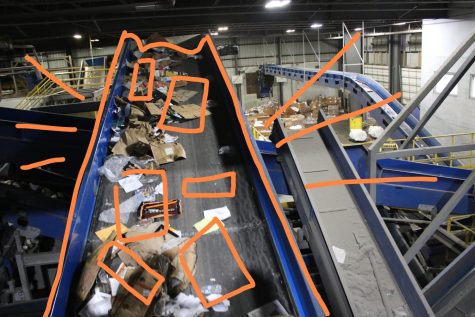
Logan Presnell, junior, said it’s also important to reuse and repurpose materials because recycling plants can’t recycle everything.
“When you throw it away, there’s a 100% chance it’s getting burned or thrown into a landfill,” Presnell said. “When you recycle, you take a chance on someone actually repurposing this plastic, cardboard or paper to be used again.”
Kevin Koch, AP environmental science and geoscience teacher, said he sees a lot of students recycle in his classroom.
But, recycling should still be considered a last resort, he said. In his classroom, he encourages reducing and reusing materials first.
“When assignments are graded and given back, students
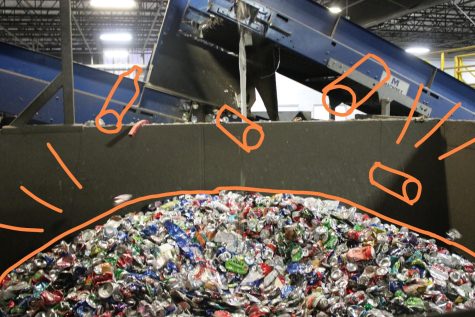
can recycle it or they can reuse it,” he said. “They can use it as scratch paper.”
Koch said implementing a strong sustainability program at MHS would have to be a large, coordinated effort. The biggest challenge would be educating students and staff on what can and can’t be recycled.
Life After The Blue Bins
Recycling at MHS goes through Republic Services, one of the leading environmental industries in America, with 71 locations, two located in the St. Louis area. The material recycled from MHS goes to the flagship location in Hazelwood.
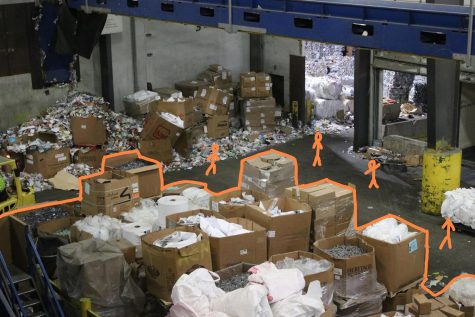
The Hazelwood Plant is a single stream material waste recovery facility. Jon Browne, recycling sales and account manager, is involved with the recycling process every step of the way.
“Here in Hazelwood, we are a material recovery center. We take in the material, process it, separate it from one another and recover that material for the secondary market,” Browne said.
Initially, recycling was on a local level, with volunteers who would collect and recover recyclable materials. Browne said about 40 years ago is when the demand for recycled materials increased and a nationwide industry developed.
The Hazelwood plant processes about 300 tons of material in 24 hours. Of this, about 19% is sent to the landfill, and the rest is recycled and transported to consumers to be reused.
Six workers sort out non-recyclable material and hazards. The average person does 30-45 picks per minute, grabbing selected material, while the machines do 1,000 picks per minute, Browne said.
“As technologically advanced as recycling has come over the past few decades and advances rapidly, people and human experience still play a role in the sorting process,” Browne said.
Once everything is separated, they are put in temporary storage until enough material is recovered to pack and transport to various buyers in the Midwestern area.
District-Wide Sustainability
Brenda Kirchhoefer, purchasing coordinator, plans the recycling budget for the district and pays Republic Services to pick up the recycling from each school. RSD paid Republic Services $60,793 this year for recycling.
“The goal is to recycle as much as possible,” Kirchhoefer said.
RSD does not compost material in the cafeterias. Only one company in the area handles composting from schools, and adding a composting program would be costly.
“Would composting be great, yes, but do we have a plan in place, no,” Kirchhoefer said.
Despite this, other districts in the area have implemented sustainability programs, which offer disposal options for recycling and composting.
One of these districts is the Parkway School District. Lindsay Elliott, sustainability & energy coordinator at Parkway, said the district participates in composting through an outside service and uses a single-stream recycling service at each district building.
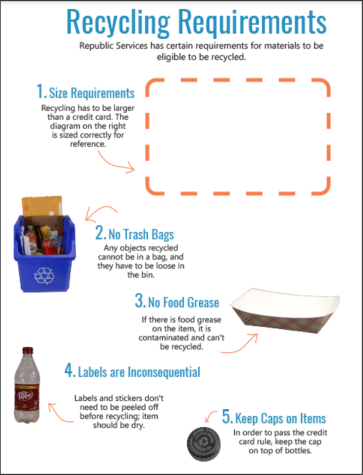
“Engaging in these sustainable behaviors from kindergarten through high school is a great way to build student confidence and willingness to continue into adulthood,” Elliott said. “I think that’s a huge benefit for our district.”
The biggest challenge the program faces is making sure all items are thrown away in the correct bins, Elliott said. Parkway has blue recycling bins and yellow composting bins to make them easily identifiable.
“I have a lot of gratitude for our custodians and other staff in our schools that help students divert their waste from landfills,” Elliott said. “They are a key component in our success.”
Elliott said everyone in the district needs to feel powerful in their ability to help the community’s environment.
“I hope other school districts see that diverting waste from landfills is an important, but feasible, way to engage students and staff in caring for the planet,” Elliott said.

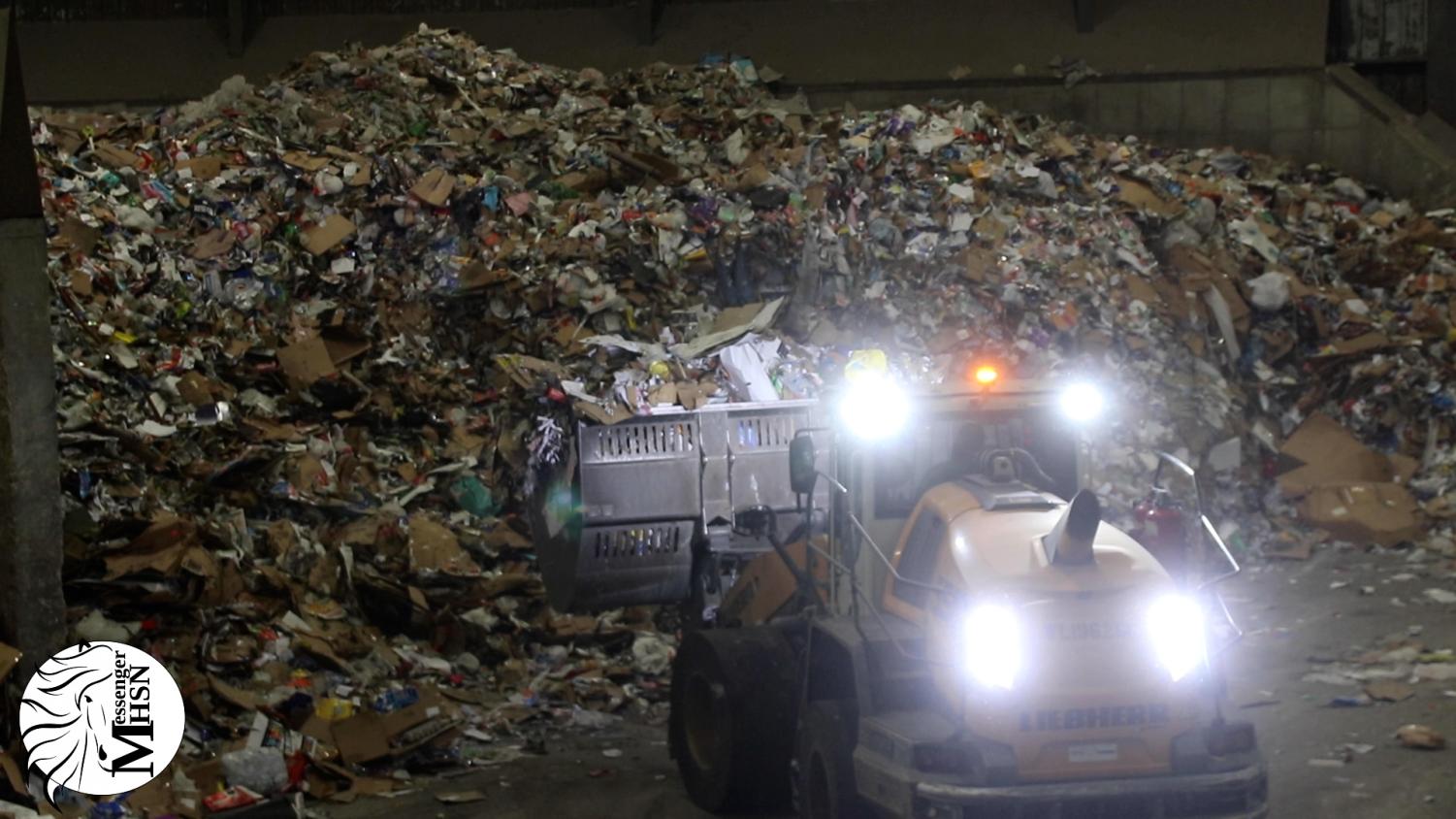

Tom Holt • Mar 29, 2023 at 1:24 PM
I’m constantly amazed at the quality of Marquette messenger content. You guys could go up against a lot of local TV stations run by full fledged adults.